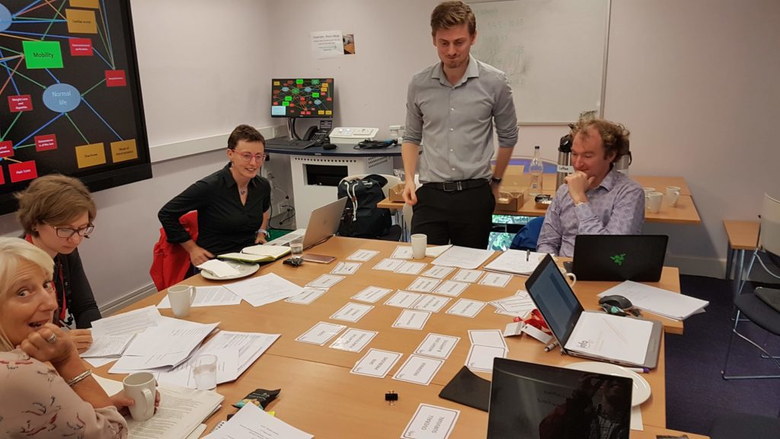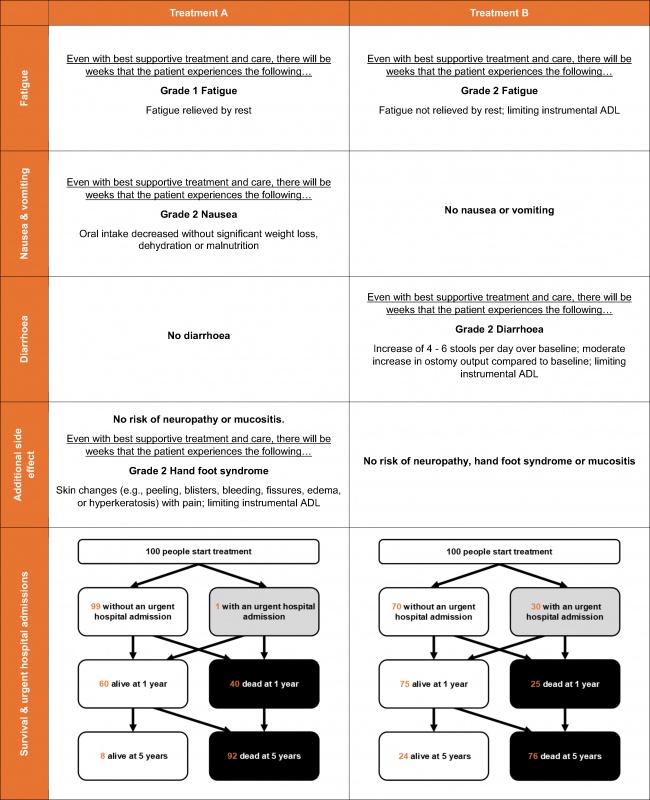Breast cancer is the most common type of cancer in the UK. About 1 in 7 females are diagnosed with breast cancer during their lifetime. There are two types of breast cancer: primary and secondary. Primary cancer is when the cancer has not spread outside the breast or glands under the arm. Secondary cancer occurs when cancer has spread from the first (primary) cancer to other parts of the body.
Healthcare professionals will consider many factors when recommending a treatment for secondary breast cancer. Each treatment has advantages and disadvantages which will impact the quality and length of the patient’s life. This means patients are faced with a difficult decision.

Info_BC study
Together with researchers from the University of Edinburgh and NHS Lothian we are conducting a study to get a better understanding of what is important to secondary breast cancer patients when making treatment decisions. We are also looking at what is important to the clinical team looking after the patients and to the general public. Our study aims to support shared decision making between patients and clinicians. The project is called the INFO-BC study and there is more information at the website of one of our project partners, the Edinburgh Health Economics unit. The project is funded by the Breast Cancer Institute, part of the Edinburgh and Lothians Health Foundation.

[Research team working on the Discrete Choice Experiment design. Source: University of Edinburgh.]
The Discrete Choice Experiment
As part of this study, we are using a Discrete Choice Experiment (DCE) to work out the preferences for different features of secondary breast cancer treatments. In a DCE we use surveys to ask people to make trade-offs between alternative options, and in this way, we can identify what people value about the health service and their healthcare. There is more information about DCEs and how we use them in our research in this short HERU video.
We based the DCE on published research and in-depth interviews with patients. After pilot testing it, we identified some of the more meaningful aspects for patients when deciding their secondary breast cancer treatment. These included overall survival, risk of urgent hospital admission, fatigue grade, diarrhoea grade, nausea and vomiting grade, and a range of additional side effects.

[Example of a choice card used in the DCE. Source: University of Edinburgh.]
By carrying out the DCE with patients and healthcare professionals we will be able to work out if there are differences in preferences between these groups.
What the study will achieve
We are currently studying the results of the DCEs. The information we learn will help us understand what matters to patients and healthcare professionals. We will also learn what the different groups think is most important. We will be able to compare the results and identify if the different groups value the same things. This information will encourage shared decision-making and the delivery of a person-centred approach which understands the needs and preferences of patients with secondary breast cancer.
|
Breast Cancer Awareness Month is held in annually in October. We’ve posted this blog article to help raise awareness of breast cancer and to highlight some of our research into breast cancer treatment and care. There is more information on breast cancer at the Breast Cancer Now website. |
Many thanks to Luis Loría Rebolledo and Mandy Ryan of HERU for their work developing this blog post.
HERU is supported by the Chief Scientist Office (CSO) of the Scottish Government Health and Social Care Directorates (SGHSC). The views expressed here are those of the Unit and not necessarily those of the CSO.


